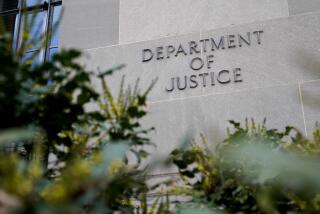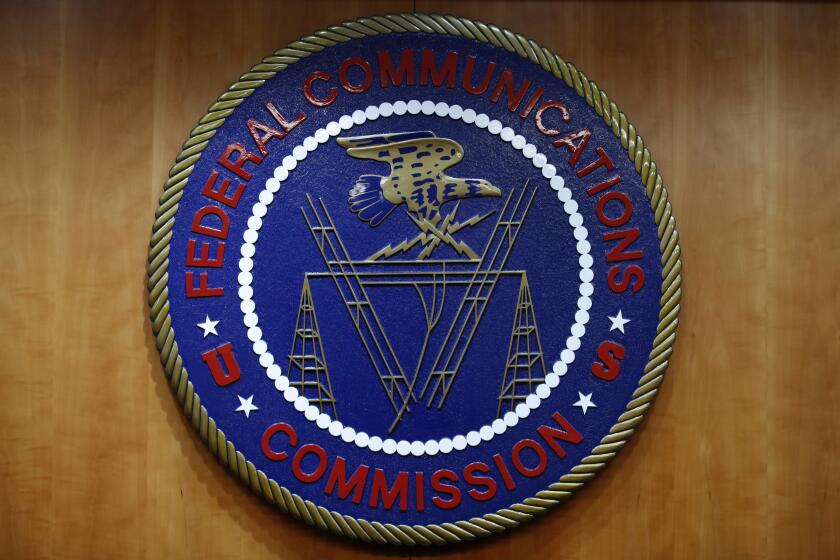Iran accuses 2 AIDS doctors of ties to U.S. spy cell
TEHRAN AND BEIRUT — A top Iranian counter-intelligence official said two renowned AIDS physicians with ties to the United States were among a group of people on trial on charges of participating in an alleged American-backed underground espionage cell, Iran’s official Islamic Republic News Agency reported Monday.
The official, who was not named, said activist brothers Drs. Arash and Kamiar Alaei were accused of participating in what Iranian officials say was a $32-million plot to help organize “soft subversion” of the Islamic Republic. Iran frequently accuses the U.S. of using nonprofit groups and activists with ties to the West as tools to foment regime change.
The official, part of Iran’s Ministry of Intelligence and Security, mentioned “initiating social crisis,” “inciting street protests” and “stirring ethnic feuds and unrests” as objectives of the alleged plot.
“The U.S., using its agents in United Arab Emirates, Baku [Azerbaijan], Turkey, Kuwait and other countries, seeks to implement a velvet revolution and tries to infiltrate the Iranian elites and experts and other social layers,” the semiofficial Fars News Agency quoted the intelligence official as saying.
“Those arrested in connection with this case were the main agents and network leaders who have deliberately and intentionally cooperated with U.S. intelligence agents and were doing whatever they wanted,” he was quoted as saying.
The Alaeis’ lawyer said he expected a verdict in the next few days and a sentence of up to 10 years in prison, which he said he would appeal.
Judiciary spokesman Ali-Reza Jamshidi said last week that the brothers and two other suspects were charged with “communicating with an enemy government” and seeking to undermine the Islamic Republic. They had a one-day trial late last month, he said.
In an announcement last year, the State Department noted that the Alaei brothers participated in a 2006 U.S.-sponsored educational exchange “which focused on public health” and “led to collaboration between American and Iranian medical professionals” on HIV and AIDS treatment and prevention. During the trial, the judge referred to an article in the legal code that states that any Iranian with relations to “hostile states” may be sentenced to 10 years in prison.
Jamshidi said last week that the four suspects would appear in court “in the near future.”
Human rights groups say the trial at the politically charged Revolutionary Court was rife with irregularities, including secret evidence that the defense had no chance to refute. The brothers’ lawyer, Massoud Shafaei, said they pleaded not guilty at the four-hour trial. “I defended my clients and tried to prove that they were not spies,” he said.
The naming of the suspects comes on the eve of the inauguration of President-elect Barack Obama. He has said he is open to increasing diplomatic dialogue with Iran. Within Iran’s political elite, hard-line and moderate factions debate and maneuver fiercely over the question of whether, how far and when to improve ties with the U.S. and the West.
The Alaei brothers gained fame in public health circles for raising awareness about acquired immune deficiency syndrome in Iran. Kamiar Alaei studied at Harvard’s School of Public Health. Arash Alaei helped launch a number of clinics in Iran to treat AIDS, a problem in Iran because of an epidemic of intravenous use of cheap Afghan heroin.
The brothers were arrested in June and are believed to be in a ward for political prisoners inside Tehran’s Evin Prison. Their cause has been taken up by several international advocacy groups, including the Cambridge, Mass.-based Physicians for Human Rights.
“To all appearances, the arrest and now the trial of these two prominent and widely traveled AIDS doctors seem to be an effort to shut the door on medical and public health collaboration on global health crises,” Frank Donaghue, head of the organization, said in a statement to media on the Alaei case.
Thousands have contacted Iran’s mission to the United Nations over the last week, asking for the brothers’ release. Both the U.S. and the European Union have condemned the detention.
“In the past, Iran has used similar charges to falsely accuse and detain civil society activists and Iranians working to enhance understanding between our two countries,” the State Department said in a statement last week.
“We urge the government of Iran to adhere to international norms by ending its policy of arbitrarily detaining its citizens or using charges of violating national security as a pretext for targeting any Iranian citizen.”
--
Mostaghim is a special correspondent.
More to Read
Sign up for Essential California
The most important California stories and recommendations in your inbox every morning.
You may occasionally receive promotional content from the Los Angeles Times.










